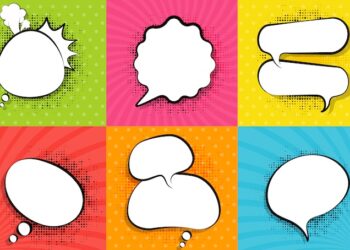“Also: please note that we NEVER link to Wikipedia,” reads the email about an article for The Conversation Africa. I’m not surprised. The same sentiment is expressed in many course documents at universities and schools. Craig Blewett reports.
Wikipedia, the pariah of content resources, is frequently considered an unacceptable and unreliable source of information. It’s critiqued as being “a mish-mash of truth, half truth, and some falsehoods”.
But, in 2005, the journal Nature conducted a study comparing the accuracy of Wikipedia to Encyclopedia Britannica. The results showed that the average Wikipedia article had four errors while the average Britannica article had three. A more recent study found that:
Wikipedia fared well in this sample against Encyclopedia Britannica in terms of accuracy, references and overall judgement.
Encyclopedia Britannica reacted strongly to the first study. In 2012, after 244 years, it stopped printing its famous print edition.
What’s important about these studies is not Wikipedia’s accuracy rate. Rather, the research reminds us that all content contains errors.
Shifting technology
Technology has changed the way we document, share and access knowledge. First came the shift from oral learning and communication to text. This meant that knowledge could be thought about carefully before it was recorded and transmitted. Once recorded it could be assessed and discussed even though the originator was not present. This increased the necessity for content to be correct before it was recorded.
Then the printing press was developed. Now written content could be replicated and shared almost without limit. Mistakes would be seen by even wider audiences, so once again correctness became crucial. The job of proofreader was even developed to guard against mistakes.
The next big advancement was the development of the computer. Now content that was recorded could be changed after the fact – a crucial change from paper-based content. Word processors, made popular by office suites like Microsoft Office, became common tools. Text could be cut and pasted, words inserted, deleted or changed, or additional content added. Proofreading was still necessary, but no longer as important. After all, content could be changed at any point in the process.
What word processors were to writing, the Internet became to printing. Now for the first time not only could content be digitally recorded, it could be shared almost without cost or limit. The explosion of content across billions of websites bears testimony to this.
We’ve always been correcting
As the research comparing Wikipedia to the Encyclopedia Britannica shows, even printed content has errors. But before digital media, we deemed content to be correct simply because the feedback loop was much slower and not as obvious. The errors in those encyclopedias were corrected in subsequent editions – and, invariably, new ones would be introduced and have to be corrected in another edition down the line.
In academia, published research would eventually be read and critiqued. This would spark new research that improved on what was previously deemed as correct.
All of our scientific development and writing, at a meta level, has essentially been a huge wiki experience. Content evolves and improves as people read and add to it. So our disdain for wiki-type, correcting spaces is essentially a rejection of the process we’ve been undertaking for centuries. The main differences now are that the correcting cycle is far quicker and many more people have input.
From content to conversation
I’ve written this article as a process born of my modern technologies. I wrote a draft without being concerned about grammar or exact phrasing, because I knew I’d return to it later. Most important was the capturing of ideas and arguments. Even these were only partially formed and after each reading some were added while others were discarded.
The process of correcting continued until the piece was complete. Complete, but not correct – because this is itself just another voice in the conversation that is correcting as we continue. This is just a wiki of voices filled with content that is surely incorrect but right in our desire to keep improving.
We need to shift our conceptions of content. We need to shift our ideas of “correct”. We need to embrace an era where everything is in beta. Everything is correcting. Everything is in conversation. Wikipedia is the ultimate exemplar of such a space. Already, teachers are showing how effective it can be as a tool for learning once we change our perspective. It shatters the illusion of perfection and encourages creativity and critical thinking.
Our attempts to ban students (and writers) from using these modern digital spaces will inevitably fail. And, in the meantime, it will rob us of the opportunity to engage in conversation, rather than blind content consumption. Let the conversation continue.
Craig Blewett is Senior Lecturer in Education and Technology at University of KwaZulu-Natal.
This article was originally published on The Conversation. Read the original article.














